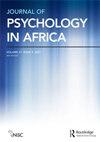小学生的同性恋社会网络和学校适应:来自津巴布韦研究的结果和意义
IF 0.8
4区 心理学
Q3 PSYCHOLOGY, MULTIDISCIPLINARY
引用次数: 0
摘要
摘要探讨了津巴布韦农村小学生的社会网络模式,以确定他们的同伴偏好和地位。参与者是津巴布韦一所农村学校4-6年级的173名学生(76名男生;97个女孩;年龄介乎9至12岁)。这些学生完成了一项同龄人社会地位提名测量,他们中的一个子样本参加了一个简短的采访,详细说明他们的提名。此外,对学校持有的文件进行了上下文分析。对数据的描述性分析产生了受欢迎(40%)、接受(30%)、拒绝(10%)和忽视(20%)四种同伴社会地位。受欢迎的原因包括有礼貌、有良好的社交习惯,以及在课堂上表现出色。那些身居班长等权威职位、乐于分享的男孩很受欢迎。女孩的社会地位可以用良好的社交习惯和与他人分享可用资源来解释。男孩最受欢迎的特质是数学技能,因为他们会帮助班上成绩较差的人。受欢迎的女孩也擅长数学和社交。研究结果验证了社交网络对中小学生社会幸福感的预测,以及对儿童的学校投入或整体学校适应的重要影响。关键词:同性社交网络学校适应学生友谊性别津巴布韦本文章由计算机程序翻译,如有差异,请以英文原文为准。
Homophilic social networks and school adjustment among primary school pupils: Results and implications from a Zimbabwean study
AbstractSocial network patterns were explored among Zimbabwean rural school pupils to determine their peer preferences and statuses. Participants were 173 school pupils attending grades 4–6 in a rural school in Zimbabwe (76 boys; 97 girls; age range 9 years to 12 years). The pupils completed a peer social statuses nomination measure, and a subsample of them participated in a brief interview to elaborate on their nominations. In addition, documents held by the school were analysed for context. Descriptive analysis of the data yielded four peer social statuses of popular (40%), accepted (30%), rejected (10%), and neglected (20%). Reasons for popularity included being good-mannered and possessing good socialising habits, as well as being outstanding in class. Boys who held positions of authority like class monitor and shared readily were popular. Girls’ social statuses were explained by good socialising habits and sharing available resources with others. Boys’ key popularity attributes were mathematical skills, as they would help the less able in class. Popular girls were also good at mathematics and socialising. The findings validate the view that social networking is significant to the prediction of social well-being among middle primary school pupils, and important for the children’s school engagement, or overall school adjustment.Keywords: homophilysocial networkschool adjustmentpupil friendshipsgenderZimbabwe
求助全文
通过发布文献求助,成功后即可免费获取论文全文。
去求助
来源期刊

Journal of Psychology in Africa
PSYCHOLOGY, MULTIDISCIPLINARY-
CiteScore
1.70
自引率
16.70%
发文量
62
期刊介绍:
Findings from psychological research in Africa and related regions needs a forum for better dissemination and utilisation in the context of development. Special emphasis is placed on the consideration of African, African-American, Asian, Caribbean, and Hispanic-Latino realities and problems. Contributions should attempt a synthesis of emic and etic methodologies and applications. The Journal of Psychology in Africa includes original articles, review articles, book reviews, commentaries, special issues, case analyses, reports and announcements.
 求助内容:
求助内容: 应助结果提醒方式:
应助结果提醒方式:


